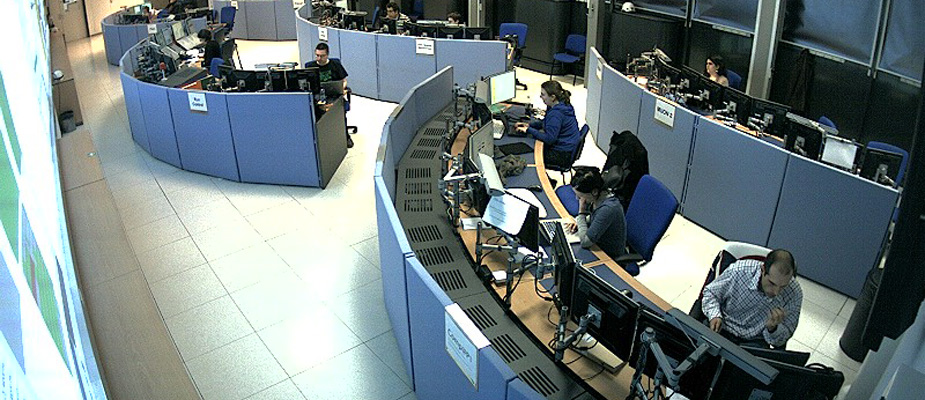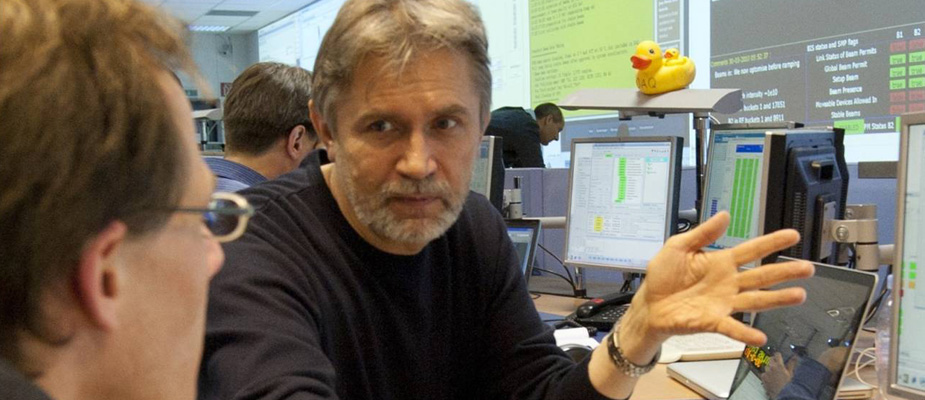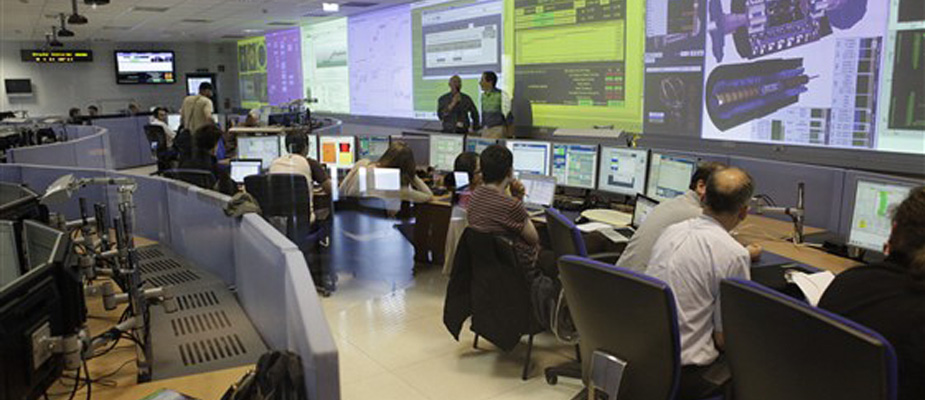Master classes
The main goal of the master classes is to introduce undergraduate and PhD students to modern methods of experiments and experimental data analysis.
Students will go through all stages of physical experiment using an example of the transition radiation tracking detector operating in the ATLAS experiment. Participants start from the study of the elementary detector component operation principle - a thin-walled proportional chamber, developed in MEPhI. Then they study electronics principles, passing through the study of detector operation monitoring and troubleshooting methods. Finally, they analyze real events with Higgs, Z or W- boson decays.
Graduate students and staff who plan to work in the ATLAS experiment are welcome to take part in online ATLAS experiment monitoring and remote TRT data quality control
- Modern trends in the high-energy physics experiments
- Large Hadron Collider, its structure, operation principles, beams structure, timing, luminosity
- Physics problems of the LHC in proton-proton and ion-ion collisions
- 4 experiments at the LHC and their purpose
- ATLAS experiment: structure, detectors, trigger, particle identification, radiation occupancy, the problem areas and requirements for the sLHC
- TRT detector: short history of development, structure, operation principles, electron identification
- Drift tube and its design
- Ionization, ionization loss in the tube, transition radiation
- Gas gain, the signal before and after amplifier
- Electronics noise, discriminating threshold
- Physical characteristics depending on thresholds (spatial resolution, electrons separation)
- Working with drift tube: optimal gas gain and threshold determination in eV, eV translation into equivalent number of electrons, calibration in mV
- The design of input electrical connections
- Characteristics and importance of each element
- Principle circuit of FE electronics, the purpose and operation of its basic elements
- What is transferred to a remote part of electronics
- Answers to questions and plotting
- ATLAS TRT detector function and construction
- Introduction to the TRT front-end electronic principles (FE-ROD-ROS-EventBuilder)
- TRTViewer software package (short description), means of data presentation (event display, straw data, straw maps, histograms (straw click and browser))
- Timing bit pattern from the drift tube and its presentation in TRTViwer window
- Threshold scan (noises), threshold tuning, the means of noise suppressions (validity gate)
- Operation with cosmic ray data and Fast-OR trigger
- Track reconstruction, timing calibration (t0, R-t dependence), coordinate accuracy, efficiency.
- The principles of electrons identification, dependencies on threshold and on high voltage
- Analysis of test results and problems characterization (noise, electronics problems, high voltage problems)
- Answer to control questions, plotting
- Introduction to DAQ system, readout electronics and online event reconstruction
- Detector Control System: destination, operation principles, errors/failures propagation
- Significance of detector slow control parameters. Remote control
- Monitoring systems. Data representation in online mode
- TRTViewer: work with "raw" data and ROOT files obtained from various monitoring software
- TRT diagnostics. Significance of parameters under control
- Questions
- ATLAS experiment setup:
- Inner detector
- Electromagnetic calorimeter
- Hadronic calorimeter
- Muon system
- Trigger systems, three trigger levels
- Particles identification methods, destination and capabilities of different detectors
- Identifying events with Z, W, Higgs bosons decays. Background events.
- Visualization and events analysis
- Reconstructing invariant mass
- Missing transverse energy
- Questions
- Borexino detector, its layout and physical tasks
- DAQ system based on fast waveform digitizers as part of Borexino
- Chain of low level experimental data analysis
- Data validation script, set of parameters and histograms to monitor
- Examples of normal and problematic runs
- Launching data validation script and taking the decisions on data quality
- Questions










